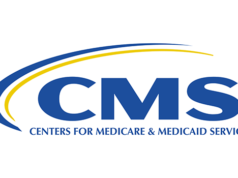
New guidelines from the American College of Cardiology (ACC) and the American Heart Association (AHA) for the prevention and management of high blood pressure have, for the first time, added renal denervation as a treatment option for patients with resistant or uncontrolled hypertension.
Published in the Journal of the American College of Cardiology (JACC), Circulation and Hypertension, the guidelines give the therapy a class IIb recommendation for patients with a systolic blood pressure of 140–180mmHg and diastolic blood pressure ≥90mmHg despite four drugs, or in patients with uncontrolled hypertension intolerant to drug escalation. All patients with hypertension who are being considered for renal denervation should be evaluated by a multidisciplinary team with expertise in resistant hypertension and in performing the technique, the guidelines state.
Renal denervation is a device-based treatment in which energy is targeted through a catheter to the renal nerves to modulate the sympathetic signalling between the kidneys and brain to reduce blood pressure.
Two devices have been approved by the US Food and Drug Administration (FDA)—the Paradise (Recor Medical) and Symplicity Spyral (Medtronic) systems—following a review of evidence from trials assessing both technologies, evidence that also contributed to the ACC/AHA guideline change. Medtronic’s Symplicity Spyral system is a minimally invasive procedure that delivers radiofrequency energy to nerves near the kidneys that can become overactive and contribute to high blood pressure, whilst the Paradise system is an ultrasound-based technology.
In July, the US Centres for Medicare & Medicaid Services (CMS) has issued its proposed National Coverage Determination (NCD) on renal denervation, recommending coverage for the therapy for the treatment of uncontrolled hypertension. A final determination is due in October.
“These updated hypertension guidelines are pivotal for physicians, as they validate renal denervation as an additional option for managing hypertension in patients who do not sufficiently respond to lifestyle modifications and pharmaceutical treatments,” said Jason Weidman, senior vice president and president of the Coronary and Renal Denervation business within the Cardiovascular Portfolio at Medtronic, in a press release issued by the company. “To date, we are seeing great interest from healthcare systems across the USA that are looking to offer the Symplicity blood pressure procedure. The updated renal denervation guidelines will enable greater patient access to this potentially life-changing intervention—not only in the USA, but globally as well.”
“As leading voices in cardiovascular health practices, the AHA and ACC strengthen support for renal denervation as a treatment option for high blood pressure,” said Lara Barghout, president and chief executive officer of Recor. “We are pleased to see that the strength of our RADIANCE Global programme formed the basis for the positive inclusion in the guidelines, which not only reinforce the credibility of this therapy—they directly align with the compelling clinical evidence behind the Paradise ultrasound renal denervation system, which has consistently demonstrated safe, effective blood pressure reduction.”
The 2025 Guideline for the Prevention, Detection, Evaluation, and Management of High Blood Pressure in Adults replaces guidelines from 2017 and includes new or updated recommendations for blood pressure management based on the latest scientific evidence to achieve the best health outcomes for patients.
The new guideline reflects several major changes since 2017, including use of the AHA’s PREVENT (Predicting Risk of cardiovascular disease EVENTs) risk calculator to estimate cardiovascular disease risk. It also provides updated guidance on medication options, including the early treatment for high blood pressure to reduce the risk of cognitive decline and dementia; use of specific medications including the possible addition of newer therapies such as GLP-1 medications for some patients with high blood pressure and who are overweight or obese, and recommendations for managing high blood pressure before, during and after pregnancy.
“High blood pressure is the most common and most modifiable risk factor for heart disease,” said chair of the guideline writing committee Daniel W Jones, professor emeritus of the University of Mississippi School of Medicine in Jackson, USA, who was also a member of the writing committee for the 2017 high blood pressure guideline. “By addressing individual risks earlier and offering more tailored strategies across the lifespan, the 2025 guideline aims to aid clinicians in helping more people manage their blood pressure and reduce the toll of heart disease, kidney disease, Type 2 diabetes and dementia.”
“This updated guideline is designed to support healthcare professionals—from primary care teams to specialists, and to all clinicians across health systems—with the diagnosis and care of people with high blood pressure. It also empowers patients with practical tools that can support their individual health needs as they manage their blood pressure, whether through lifestyle changes, medications or both,” Jones said.
The new guideline recommends that healthcare professionals use the PREVENT risk calculator to estimate a person’s risk of a heart attack, stroke or heart failure. Developed by the AHA in 2023, PREVENT is a tool to estimate 10- and 30-year risk of cardiovascular disease in people aged 30–79 years. It includes variables such as age, sex, blood pressure, cholesterol levels and other health indicators, including zip code as a proxy for social drivers of health. It is the first risk calculator that combines measures of cardiovascular, kidney and metabolic health to estimate risk for cardiovascular disease. More precise risk estimates can help guide treatment decisions personalised for each individual, AHA and ACC state.












